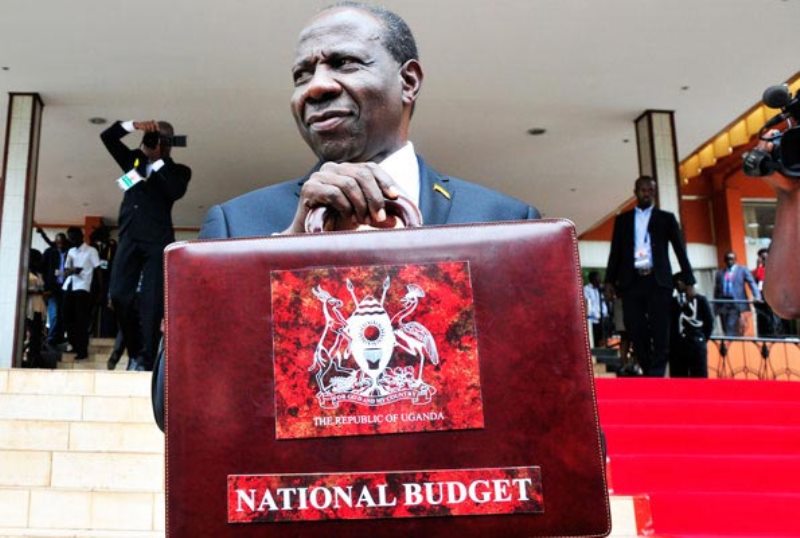By Ronnie Mukundane
Labour externalization was, until the spread of Covid-19 across the globe, one of the fastest growing sectors and was providing employment opportunities to thousands of Ugandans across the Middle East and other parts of the world.
To date, there are more than 165,000 Ugandans who are gainfully employed in the Middle East through this program.
According to the recent statistics, the annual remittances from migrant workers in the Middle East alone into the country currently had grown to over USD 700million and domestically, the sector has also been contributing direct employment opportunities to over 4,000 Ugandans through the 200 Licensed Labour externalizing companies, several predeparture training institutions and other numerous opportunities through back and forward linkages with sectors like hotels and Airlines transport.
However, the emergence of a resurgent Covid-19 virus across the globe has grossly affected the sector.
Most of the destination countries like UAE, the Kingdoms of Saudi Arabia and Jordan were the worst hit and had to impose lockdowns. Currently most externalizing companies have closed shop, suspended operations affecting over 4,000 direct employees of these recruitment companies and their dependents.
Further, the closure of these companies has affected thousands of migrant workers that had been cleared to travel abroad before the lockdown. For example about 960 workers who were in transit (Cairo and Dubai, en route Middle East, etc.) were returned to Uganda due to stoppage of entry to the Middle East.
Moreso other Ugandans who wanted to seek employment opportunities abroad are now despondent. Each month approximately 5,000 Ugandans are externalized for work; this means in the past four months 20,000 Ugandans have lost the opportunity to work.
In revenue terms, the sector has been contributing huge None Tax Revenue to government agencies through Purchase of passports, VISA fees (income to other countries, Interpol charges (98% of the Interpol Letters are from Labour recruiting companies,Bank charges and Vaccination payments against yellow fever of 100,000 per person.
This translates into billions of shillings for over 5,000 migrant workers that are externalized every month.
The externalisation sector also has forward and backward linkages to other sectors and has contributed to Business growth to these sub-sectors. For example, the Air Transport has been hit severely, theMinistry of Gender, Labour and Social Developmentaccredited Training Centers forOrientation of Migrant workers, Medical centers accredited to provide medical service, the Media for advertisement of job orders averaging 1.6 billion per month.

Total losses here are estimated at over 90 billion shillings in the last four months.
The other challenge for the sector is that some of the Migrant Workers already abroad have not been paid by their employers due to lack of an income/ lockdown, this leads to depletion of the already earned or saved income.
This however excludes domestic workers who have continued to work and hence are paid.
Many workers whose contracts had expired are stuck in the destination countries and are most likely to illegally stay there due to high rates of unemployment in either countries – Uganda or abroad.
There is already a growing concern that there is going to be increased cost of services involved in the recruitment process due to prolonged and expensive documentation requiring COVID-19 Certificates, etc and this lengthy processes will lead to human trafficking.
There is also a challenge of bank loans.
Most recruitment companies have accumulated unpaid interest on loans acquired before the lockdown currently estimated at 10 Billion in loans exclusive interest.
This means with the high interests on loans and loss of business, if some companies are not subsidized by government, they will close hence loss of revenue to government and jobs for many Ugandans.
However, the sector, through the coordination of UAERA is planning a number of recovery interventions in the aftermath of the Covid-19.
These include developing its own Standard Operating Procedures (SOPs) in addition to those developed by Ministry of Health, ensuring that all future migrant workers have a COVID clearance certificate to ease their travel and to prepare them for Quarantining procedures once they travel and to fast track use of e-business (online applications for Interpol, passports and other services).
We also plan to re-negotiate collaterals with the banks that lent to the companies. We also hope Government will negotiate with the service providers like Interpol not to charge again for the expired Interpol certificates and Embassies can also waive visa fees for the visas that had been paid for.
In the medium term, we hope Government through Ministry of Foreign Affairs will prioritize the signing of Bi-laterals and other Labour Agreements with labour importing countries such as UAE, Qatar, Oman, Bahrain and Turkey; this will help in reducing the operational costs. There is also need for decentralization of Services such as Interpol and Passports to reduce on costs in transport and accommodation.
UEARA also hopes Government will consider it as a beneficiary in the government stimulus financial support including the waiver of licensing fees at Renewal for this year.
We hope that in the next two years, the labour externalization sector, if supported to recover, will play a pivotal role in providing employment opportunities for people who were laid off in Uganda during COVID-19.
The author is the Public Relations Officer/Spokesperson -Uganda Association of External Recruitment Agencies
ronnie.mukundane1@gmail.com





